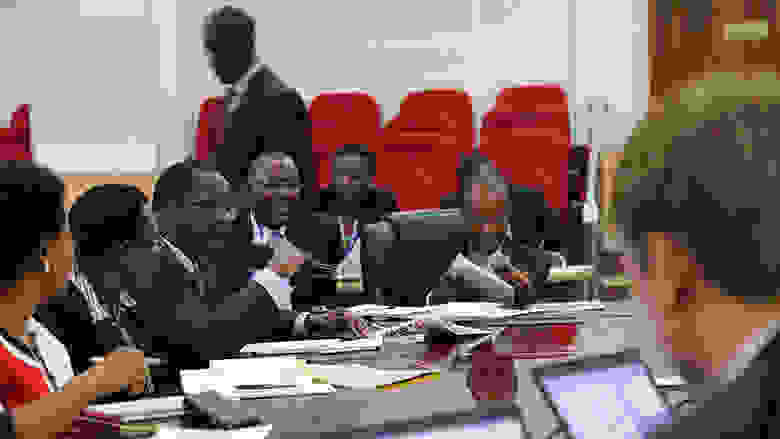PHASE 2 CONSULTATIONS CLOSED JANUARY 15, 2016
The World Bank Group’s (WBG’s) Country Partnership Framework (CPF) for Uganda is developed in partnership with the Government of Uganda and in close consultation with stakeholders. The CPF uses Uganda’s Vision 2040 as its starting point, and the development goals and strategies set out in the second National Development Plan (NDP II). It further draws from the WBG Systematic Country Diagnostic (SCD), which has been prepared in close consultation with national authorities and other stakeholders, to identify the most critical constraints and opportunities facing Uganda’s progress towards poverty reduction and shared prosperity.
The consultations for the CPF took place between November 2015 and January 2016 and focused on how the WBG can best support Uganda’s development goals, taking into account the comparative advantages of the WBG and other development partners. The consultations confirmed the relevance of the priority areas identified in the SCD, and provided important input into the preparation of the CPF. The top-five takeaways from the consultations included:
- Agriculture as a key priority: The sector drives poverty reduction. Innovative approaches and private sector involvement are key given the sector’s impact on poverty reduction and forward and backward linkages with other sectors such as agro-processing.
- Population growth is a main challenge: The high fertility rate in Uganda hampers per capita growth, poverty reduction and shared prosperity. In that context, the CPF’s focus on urbanization, health and, in particular, education, is welcomed.
- Implementation deficit: Whereas there is general consensus around development challenges and opportunities, slow implementation deficit is consistently mentioned as a constraint to increasing development impact.
- Social accountability: The WBG should explore opportunities for citizen engagement and third party monitoring.
- Consultation and partnerships: The WBG should continue promoting strong partnerships and seek complementarity and consult stakeholders before, during and after project implementation.
The WBG is thankful to all who have shared their views and suggestions on how Uganda, with the support of the WBG, can make progress towards ending extreme poverty and promoting shared prosperity.
LEARN MORE
Please visit the World Bank Uganda webpage to learn more about what the WBG is currently doing in Uganda. If you have any questions or comments, feel free to contact us on ugandainfo@worldbank.org

